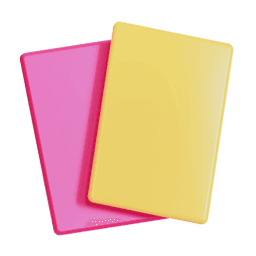Creating and Storing Objects (Instantiation)
Emily Wilson
7 min read
Listen to this study note
Study Guide Overview
This study guide covers constructors and object initialization in Java. Key topics include: object creation with the new keyword, constructor signatures, pass-by-value vs. pass-by-reference, constructor overloading, and working with null objects. It also discusses common exam questions and provides practice problems.
#AP Computer Science A: Constructors & Object Initialization 🚀
Hey! Let's get you prepped for the AP exam. This guide is designed to be your best friend the night before the test—clear, concise, and super helpful. We'll break down constructors and object initialization, making sure everything clicks into place. Let's do this!
#Constructors & Object Creation
#What's a Constructor? 🤔
Think of a constructor as the object factory 🏭. It's a special method that creates new objects and sets them up with their initial characteristics. When you create a new object, you're essentially calling its constructor.
For example, if we have a Person class, we can create a Person object like this:
java
Person peter = new Person("Peter", 17, 13);
Person: The class name (usually capitalized).new: Keyword to call the constructor.("Peter", 17, 13): The parameter list – values for the object's characteristics.peter: The object name (camelCase).
#Key Points to Remember
- Object Creation: The
newkeyword is essential. It's like saying, "Hey, make a new one of these!" - Parameter List: These are the initial values for the object's attributes.
- Naming: Class names are capitalized, object names are camelCase.
Constructors initialize objects. The new keyword calls the constructor, and the parameter list provides initial values.
#Pass-by-Value vs. Pass-by-Reference
Java uses pass-by-value. Here's what that means:
- Primitives (int, double, etc.): A copy of the value is passed. Changes inside the constructor don't affect the original value.
- Reference Types (Objects, Arrays): A reference (memory address) is passed. Changes do affect the original object.
Primitives are passed by value (copy), while objects are passed by reference (address).
#Constructor Signature
The signature is the constructor's blueprint. It includes the class name and the parameter types. For our Person example, the signature is:
java
Person(String name, int age, int grade)
- It only shows the types of parameters, not their names.
- It's crucial for the compiler to know which constructor you're calling.
#Abstraction
Using constructors without knowing their inner workings is abstraction. You trust that the constructor will set up the object correctly without needing to know the details. It's like using a microwave—you don't need to understand how it works internally to heat up your food.
Think of a constructor as a factory: you give it raw materials (parameters), and it builds you a finished product (an object).
#Constructor Overloading
#What is Overloading?
A class can have multiple constructors, as long as they have different:
- Number of parameters
- Order of parameter types
This is called overloading. It lets you create objects in different ways.
#Examples of Overloading
java
Person(String name, int age, int grade) // Constructor 1
Person(int age, int grade, String name) // Constructor 2
new Person("Peter", 17, 13)calls Constructor 1. -new Person(17, 13, "Peter")calls Constructor 2. ### Illegal Overloading
These are illegal because the parameter types are the same:
java
Person(String name, int age, int grade)
Person(String name, int grade, int age) // ILLEGAL!
Overloaded constructors must have different parameter types or a different number of parameters. Changing only the parameter names is not enough.
#Fewer Parameters
Constructors can have fewer parameters. The missing parameters use default values set by the class creator. A constructor with no parameters is called the default constructor.
java
Person(String name, int age, int grade)
Person(int age, int grade)
Person(int age)
Person() // Default constructor
Pay close attention to the order and types of parameters when choosing the correct constructor.
#Null Objects
#What is Null?
An object can be set to null:
java
Person invisible = null;
null means the object doesn't exist. It's not stored in memory. You can't call methods on a null object; that will cause a NullPointerException.
#References and Memory
Reference variables (objects, arrays) store the address of the object in memory. If there's no object, the reference is null.
Understanding null objects and NullPointerException is crucial for avoiding runtime errors. Always check if an object is null before using it.
#Final Exam Focus
#Key Areas to Review
- Constructor Basics: How to create objects using
newand constructors. - Pass-by-Value vs. Pass-by-Reference: Crucial for understanding how methods affect data.
- Constructor Overloading: How to create multiple constructors with different parameter lists.
- Null Objects: What they are and why they cause errors.
#Common Question Types
- Multiple Choice: Identifying correct constructor calls, understanding pass-by-value/reference, and spotting potential
NullPointerExceptions. - Free Response: Designing classes with appropriate constructors and handling object initialization.
#Last-Minute Tips
- Time Management: Don't spend too long on one question. Move on and come back if you have time.
- Common Pitfalls: Watch out for
NullPointerExceptionsand incorrect constructor signatures. - Strategies: Read questions carefully, identify the core issue, and break down complex problems into smaller parts.
#Practice Questions
Practice Question
#Multiple Choice Questions
Question 1:
Given the following class definition:
java
public class Book {
private String title;
private String author;
public Book(String title, String author) {
this.title = title;
this.author = author;
}
public Book(String title) {
this.title = title;
this.author = "Unknown";
}
}
Which of the following code segments will cause a compile-time error?
(A) Book book1 = new Book("The Odyssey");
(B) Book book2 = new Book("The Iliad", "Homer");
(C) Book book3 = new Book();
(D) Book book4 = new Book(null, null);
Question 2:
Which of the following statements is true about pass-by-value and pass-by-reference in Java?
(A) Primitives are passed by reference, and objects are passed by value. (B) Both primitives and objects are passed by value. (C) Primitives are passed by value, and objects are passed by reference. (D) Both primitives and objects are passed by reference.
Question 3:
What is constructor overloading?
(A) Creating multiple constructors with the same parameter types. (B) Creating multiple constructors with different parameter types or a different number of parameters. (C) Creating a constructor with no parameters. (D) Creating a constructor that does not initialize any instance variables.
Question 4:
What does a NullPointerException indicate?
(A) An attempt to access a variable that has not been declared.
(B) An attempt to call a method on a null object.
(C) An attempt to divide by zero.
(D) An attempt to access an array element with an out-of-bounds index.
#Short Answer Questions
Question 1:
Explain the difference between pass-by-value and pass-by-reference in Java.
Question 2:
Describe a scenario where using constructor overloading can be beneficial.
Continue your learning journey

How are we doing?
Give us your feedback and let us know how we can improve





